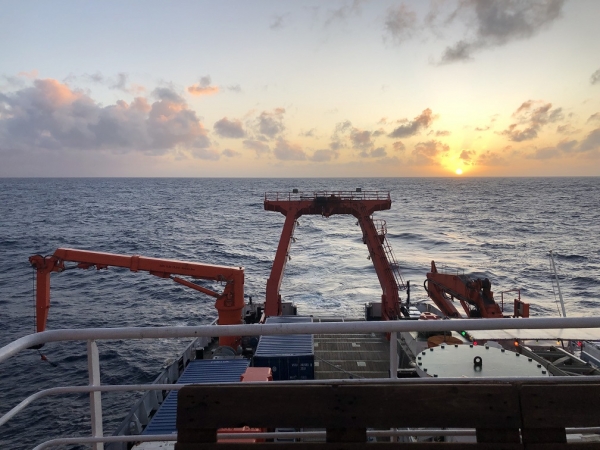Tomorrow, the research vessel METEOR will leave Cyprus for a four-week research cruise in the Eastern Mediterranean, led by the GEOMAR Helmholtz Centre for Ocean Research Kiel. The Eastern Mediterranean Sea is particularly affected by climate change and human activities and is changing rapidly. The planned investigations across a diverse range of oceanic settings will provide information on what these changes look like and what they mean for the ecosystems of a future (sub)tropical ocean. The data collected will be combined with information from satellites and other autonomous platforms and modelling to provide a comprehensive picture of the changes.
The Eastern Mediterranean Sea (EMS) is one of the most rapidly changing ocean basins on Earth. It is particularly affected by both climate change and extensive pressures from human activities. This makes it a unique research environment that can provide information on future changes in the global ocean.
“The Eastern Mediterranean Sea as a Model for Future Ocean Research” (EMS FORE) is the name of an international project led by the GEOMAR Helmholtz Centre for Ocean Research Kiel and funded by the Helmholtz Association as a Helmholtz International Laboratory. “In the project, we are using the Eastern Mediterranean Sea from the coast to the deep sea as a natural laboratory,” explains Dr Thomas Browning, Junior Research Group leader in the Research Unit Chemical Oceanography at GEOMAR. He is the chief scientist of METEOR expedition M197, a key part of the project, which starts today.
Read more at: Helmholtz Centre for Ocean Research Kiel (GEOMAR)
Because of the conditions there, the eastern Mediterranean can serve as a model for future marine research. (Photo Credit: Tom Browning, GEOMAR)


